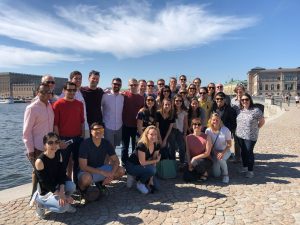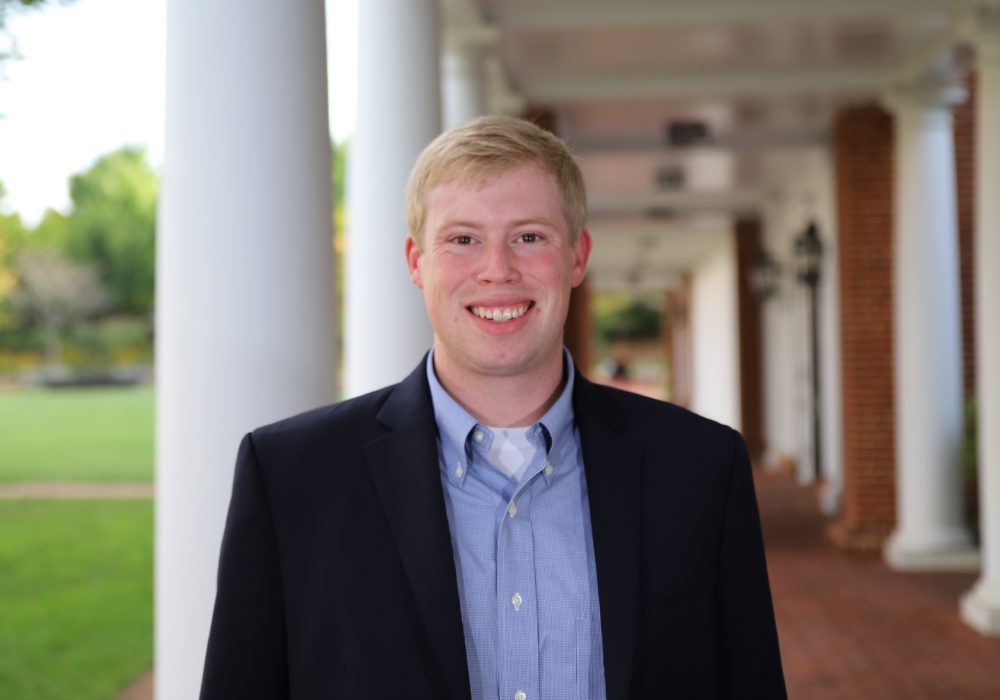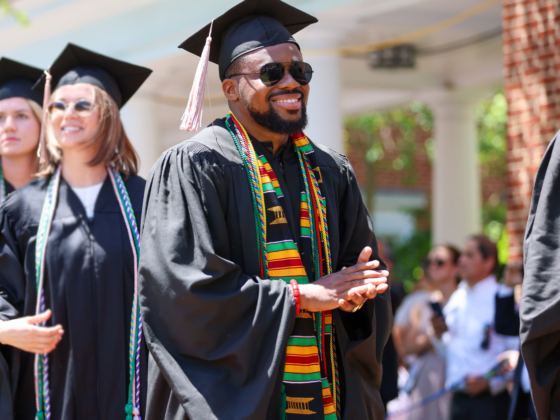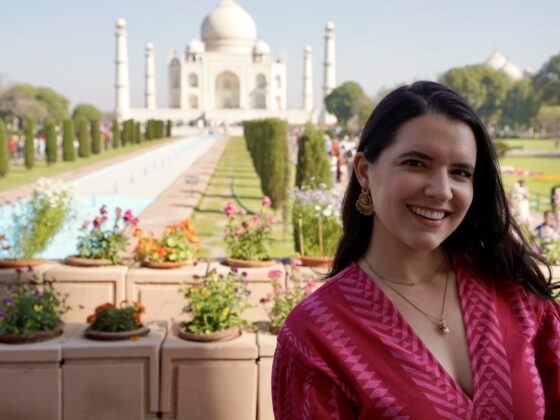By Clare Mortenson
Please tell us about your background. Why did you decide to pursue your MBA degree at Darden?
After completing my undergraduate degree in economics and foreign affairs at the University of Virginia, I worked in the public sector and became interested FinTech. I decided to attend business school so that I could learn more about and participate in this industry after graduation. I chose Darden for two reasons; first, I felt that the Darden student body was more cooperative than competitive and I believed I would receive support from and have fruitful collaboration with my peers here more so than at other schools. Second, I wanted to understand business on a global scale and Darden’s global academic offerings as well as its student body composition were particularly appealing in that respect. About one-third of Darden’s student community is made up of international students, and I knew this demographic at Darden could help provide the global business perspective I desired. I participated in the Darden Worldwide Course (DWC) to Sweden last year and it was an invaluable learning experience. As a second year student, I took part in a Global Consulting Project (GCP) team that worked on a derivatives and advertising project for a company in London, which we visited over winter break.

Please share more about your experience in Sweden – why did you decide to participate in this DWC?
I was interested in the Darden Worldwide Courses in Germany and Sweden, but I ultimately chose the Sweden DWC after I had the chance to speak to the faculty leader of the program, Professor Marc Modica. He piqued my interest in the course after he explained some of the differences between the entrepreneurship culture in the United States and in Sweden. I had previously participated in an undergraduate study abroad program in Germany and I had not been to Sweden before, so the Sweden DWC also offered me a new culture and country to experience.
What were some of your takeaways from the Sweden DWC?
During the trip, our group had the chance to visit Tobii Technology where we heard presentations by their president and other senior managers. Their work in technology and marketing, as well as the international span of Tobii’s team members, inspired me – there are over 20 different languages spoken in their office alone. At the end of the summer I reached out to the president of Tobii as the VP Corporate & Alumni Relations of the Darden Technology Club. Tobii agreed to become a Gold Sponsor of the club and they have already attended an event on grounds to showcase their company, exhibit their products and network with students.
During the DWC, we also visited the Stockholm School of Economics (SSE) where I befriended the president of SSE’s incubator. He connected me with some of his contacts at Klarna, a digital banking corporation, with whom I am looking to create opportunities for Darden students. One of the objectives of the Darden FinTech Club, an organization that I helped start as a first-year student and for which I currently serve as the VP of Events, is to connect the Darden community with more FinTech companies. We would not have had these unique opportunities with Klarna and Tobii without the DWC connections in Sweden.

Why did you decide to participate in the Global Consulting Project (GCP) in London?
I learned about GCPs and DWCs as a prospective student and I knew that I wanted to participate in both programs to gain as much global academic experience as possible during my time at Darden. GCPs are exciting because they provide the opportunity to create and implement theoretical solutions in real world situations all around the globe. These projects require synthesizing knowledge and skills and applying them to the problem at hand within different cultural contexts. I was attracted to the GCP based in London because the project pushed boundaries and has potential for profound impact.
How have these global experiences broadened your perspective on business?
The biggest lessons I took from the DWC in Sweden and the GCP in London were learning to appreciate the value of cultural differences, and there is always more than one path to a solution. In Sweden, for example, there was stronger comradery among the ventures in Stockholm as if they were all working to succeed together. Sweden’s size plays a part in its entrepreneurial outlook and decision making: ventures have to have a global perspective from the start because they are based in a small domestic market. Conversely in the United States, companies often begin with a local or national perspective and then discern how they can make a global impact. This perspective gives the Swedish companies an advantage when transitioning to a global market. Additionally, in London I saw how bringing people together from a variety of different countries can work to come up with creative solutions together. Applying these global perspectives could open up doors for lasting organizational growth and success in the U.S.
What are some of your plans after Darden?
After graduation, I will return to Mastercard as a manager with the Management Associate Program’s Product track, where I did my internship in product development over the summer. Part of Mastercard’s rotational management program includes six months of working abroad, which I am very much looking forward to. I hope to move abroad at some point in the future, so this will be a valuable first full-time work experience outside the United States. Beyond Mastercard, I am interested in starting my own FinTech payments company or working for a FinTech startup. I see great potential in this field to solve many problems that businesses face on a daily basis.





